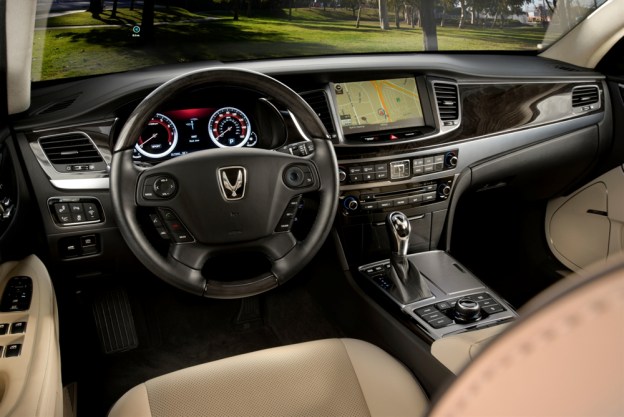
What if your car was nothing more than a four-wheeled smartphone?
What if car companies spent as much time thinking about connectivity and apps as they do about horsepower and fuel economy? Making the car an extension of our online selves would add convenience, but it wouldn’t be without problems.
“It’s time for the car to be a social device,” Jim Farley, Ford’s executive VP of global marketing, sales, service, and the Lincoln brand, said during a press event at the 2013 New York Auto Show.
“Ford’s… ultimate goal is having a user’s data migrate seamlessly from their smartphone to their car.”
“You can have someone essentially take a car… and make it just for you,” K. Venkatesh Prasad, Ford’s in-car electronics czar, said.
Ford plans to do it with platforms like the developer-friendly OpenXC architecture, which could allow independent developers to create software and hardware that can interact with a car’s systems. Ford is already promoting this approach with its Developer Program and Personalized Fuel Efficiency App Challenge, which aim to encourage the development of apps for Ford vehicles.
Ford is also working on better integrating existing apps like Pandora and Spotify, with the ultimate goal of having a user’s data migrate seamlessly from their smartphone to their car.
So far, though, the car is far from being a mobile device. Ford’s MyFord Touch infotainment system has been panned and drivers risk distraction while behind the wheel as systems become more complex, feature-laden and interactive. Voice-operated systems are available and could be a partial answer to the problem of distracted driving but more development is needed.
Additionally, when voice activation systems cannot understand a request (or get it wrong), drivers can be distracted while working with car controls or their phones to fix the problem.
Noting that Ford spends a significant amount of resources on driver education, Farley said only drivers themselves can guarantee safety.
“I hope it’s the consumers choosing… and not being something that they’re told to do,” he said.
Brendan Kraham, mobile advertising sales manager for Google, suggested that predictive technologies could negate the need for consumers to pull out their phones while driving, because their cars could automatically access the phones and pull up the relevant data after the driver initially syncs the device.
Some newer in-car systems, such as Subaru’s Starlink and BMW’s iDrive systems, are implementing this concept now but for the most part the idea is still in it’s infancy and its not always easy for customers who are not especially tech-savvy to implement the technology.
Will an intuitive interface be as important as a comfortable seating position?
“It’s the user’s choice ultimately to make those decisions,” Kraham said, noting that Google allows users to opt-out of its current location-based ads.
Ford’s Farley said consumers would ultimately tell the companies when they want to see ads. He used Ford’s Mustang Customizer, a popular app that allows users to trick out a virtual Mustang, as an example. “In a way, it’s self-governing,” he said.
Will car customers of the future complain about lack of privacy in their own vehicles? Will an intuitive interface be as important as a comfortable seating position? That’s what car manufacturers and car buyers will have to figure out if the car really becomes a “mobile device.”
What’s your experience with in-car technology? What works? What drives you crazy? What features or automation would you like to see? Leave us a comment.
Editors' Recommendations
- Google is bringing Chrome browser to cars, even more EV features to Maps
- Cadillac’s new 2020 CT5 sedan lets you Super Cruise across America


